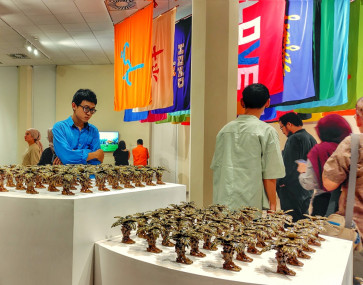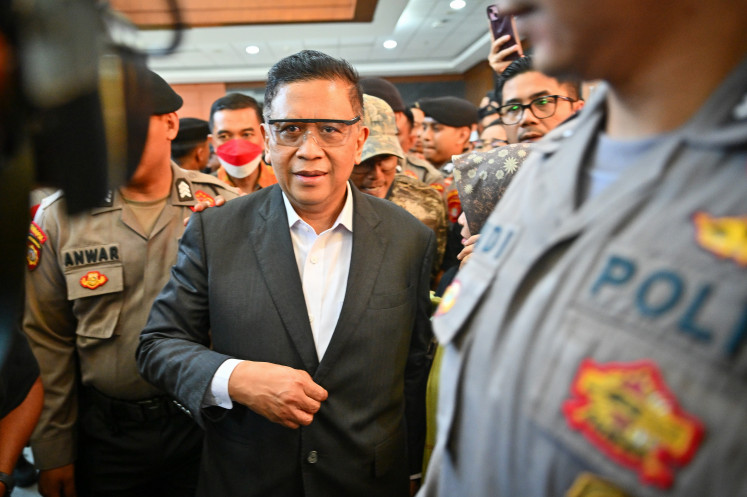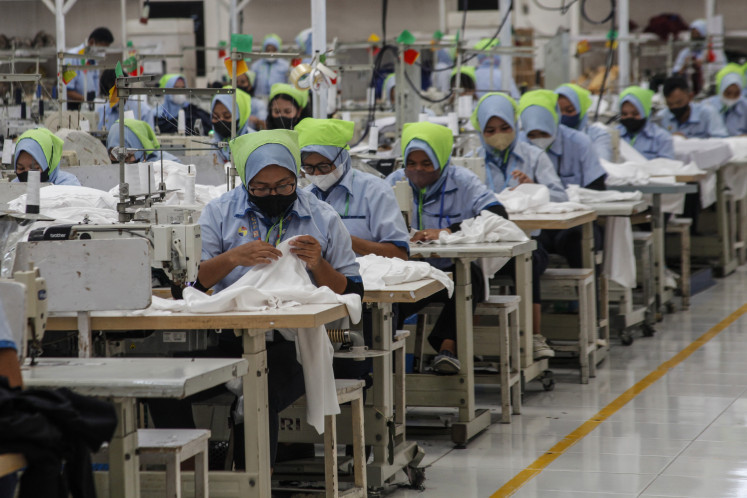Popular Reads
Top Results
Can't find what you're looking for?
View all search resultsPopular Reads
Top Results
Can't find what you're looking for?
View all search resultsRI not to interfere in China’s ‘reeducation’ of Uighurs
Indonesia will not interfere in China’s handling of Uighur Muslims sent to so-called ideological reeducation camps, with officials hopeful that Beijing will uphold the rule of law and human rights
Change text size
Gift Premium Articles
to Anyone
I
ndonesia will not interfere in China’s handling of Uighur Muslims sent to so-called ideological reeducation camps, with officials hopeful that Beijing will uphold the rule of law and human rights.
Even as the world’s largest Muslim-majority country, Indonesia and other members of the Organization of Islamic Cooperation (OIC) were careful in addressing the issue of detained Uighur Muslims in China’s Xinjiang province, as they relate to the “common concerns” of radicalism, terrorism and separatism, said Achsanul Habib, the Foreign Ministry’s human rights director.
“It is the basic principle of our international policy that the government respects the sovereignty of other countries and will not interfere in their internal affairs,” Achsanul told The Jakarta Post on Wednesday.
“Regarding ethnic Uighurs, Indonesia believes the Chinese government will soon settle the issues in accordance with the rule of law, while continuing to uphold the best human rights protection principles for all its people.”
The non-interference stance was taken after Jakarta’s careful examination of a statement issued in August by the United Nations Committee on the Elimination of Racial Discrimination and China’s response thereof, the ministry official said.
From Beijing’s statement, Jakarta took note of China’s insistence that it was facing challenges in the spread of radicalism and terrorism that had stoked separatist sentiments in the country’s west. It also claimed that the steps taken “were legal remedies that are unrelated to de-Islamization as alleged”.
China has faced increasing international pressure over reports revealing a massive crackdown on Muslims in the secular country —particularly of Uighur Muslims in the Muslim-majority Xinjiang autonomous region.
Gay McDougall, a member of the UN Committee, cited estimates last month that 2 million Uighurs and other Muslim minorities were forced into “political camps for indoctrination” in the province.
Human Rights Watch (HRW) earlier this month released a report stating that Chinese restrictions on religious practices had dramatically escalated since they were imposed in 2014 in Xinjiang.
The Indonesian Ulema Council (MUI), often cited as the voice of conservative Islam in Indonesia, criticized Indonesia’s position on the matter, with international relations chairman Muhyiddin Junaidi saying the government should urge China to stop religious repression by teaming up with civil society groups and lawmakers.
“We should convey our concerns based on facts in the field,” he said, adding that the MUI had contacts in Xinjiang who had confirmed such reports.
Meanwhile, presidential envoy Din Syamsuddin said there was plenty of distorted information on the issue, making it hard for the government to take sides.
While China’s actions in Xinjiang have caused alarm at the UN and with other western democracies, Indonesia and OIC member states have been criticized for their silence.
The OIC was likely reluctant to respond because it involved a rising superpower that had never interfered in other countries’ affairs, said HRW Indonesia researcher Andreas Harsono.
“However, this non-interference stance is outdated in a human rights context. Indonesia should take part in addressing the issue through various mechanisms, including bilaterally or even through the OIC,” he said.
Meanwhile, Centre for Strategic and International Studies (CSIS) researcher Christine Tjhin said Indonesia should help ensure the dissemination of credible information on the Uighur issue, so as to promote awareness and knowledge about occurrences in Xinjiang among Indonesians.
That way, the public would be less prone to reverting to identity politics and can comprehensively assess the situation of China’s diverse Muslim communities. (tjs)










